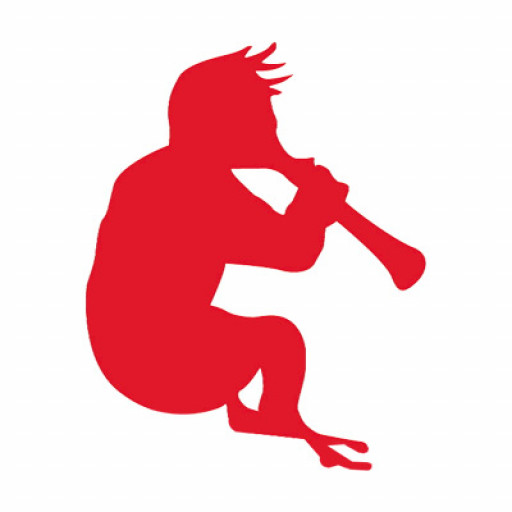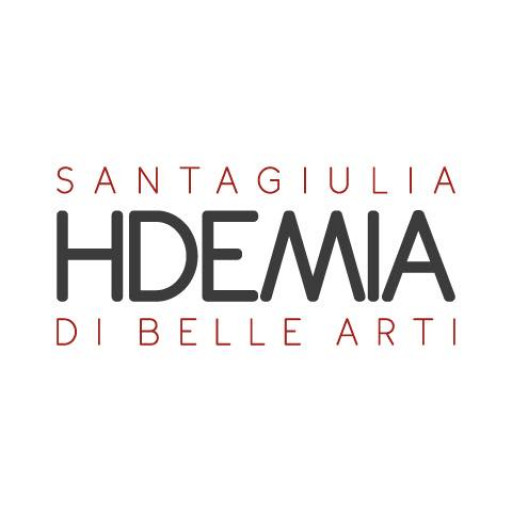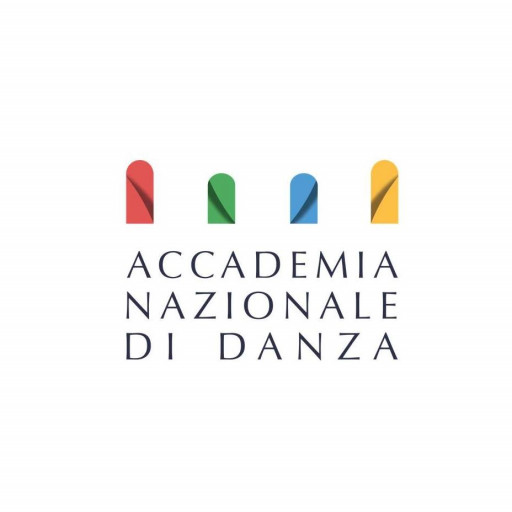Welcome to the Baroque Oboe Programme at Giulio Briccialdi Institute for Musical Studies
Are you looking for an opportunity to explore the world of Baroque Oboe? Look no further than the Giulio Briccialdi Institute for Musical Studies! Our Baroque Oboe Programme offers a comprehensive and immersive learning experience for aspiring oboists.
Our programme is designed to provide students with a thorough understanding of the Baroque Oboe, its history, and its performance techniques. Through our courses, students will gain a deep appreciation for the instrument and its repertoire. We also offer a variety of performance opportunities, including masterclasses, recitals, and ensemble performances.
Our faculty consists of world-renowned oboists who are passionate about teaching and inspiring the next generation of oboists. Our faculty members are dedicated to providing students with the highest quality of instruction and guidance.
We invite you to join us and explore the world of Baroque Oboe. We look forward to helping you reach your musical goals!
Welcome to the Giulio Briccialdi Institute for Musical Studies!
Are you interested in learning the Baroque Oboe? Look no further than the Giulio Briccialdi Institute for Musical Studies! Our Baroque Oboe programme is designed to provide students with a comprehensive understanding of the instrument and its repertoire.
Our programme is led by experienced instructors who are passionate about the Baroque Oboe and its music. We offer a variety of courses, from beginner to advanced levels, to help you develop your skills and knowledge. Our courses cover topics such as Baroque ornamentation, articulation, and improvisation. We also offer masterclasses and workshops to help you hone your technique and performance skills.
At the Giulio Briccialdi Institute for Musical Studies, we strive to create a supportive and inspiring learning environment. Our instructors are dedicated to helping you reach your musical goals and become a confident and competent Baroque Oboe player.
We look forward to welcoming you to the Giulio Briccialdi Institute for Musical Studies and helping you become a master of the Baroque Oboe!
Requirements for the Baroque Oboe Programme at Giulio Briccialdi Institute for Musical Studies
Are you interested in studying Baroque Oboe at Giulio Briccialdi Institute for Musical Studies? Our programme is designed to provide students with the skills and knowledge necessary to become a successful Baroque Oboe player.
In order to be accepted into the programme, applicants must meet the following requirements:
- A minimum of Grade 8 in Oboe or equivalent
- A minimum of Grade 5 in Music Theory or equivalent
- A minimum of Grade 5 in a second instrument or equivalent
- A minimum of Grade 5 in a third instrument or equivalent
- A minimum of Grade 5 in a fourth instrument or equivalent
- A minimum of Grade 5 in a fifth instrument or equivalent
- A minimum of Grade 5 in a sixth instrument or equivalent
- A minimum of Grade 5 in a seventh instrument or equivalent
- A minimum of Grade 5 in a eighth instrument or equivalent
- A minimum of Grade 5 in a ninth instrument or equivalent
- A minimum of Grade 5 in a tenth instrument or equivalent
- A minimum of Grade 5 in a eleventh instrument or equivalent
- A minimum of Grade 5 in a twelfth instrument or equivalent
- A minimum of Grade 5 in a thirteenth instrument or equivalent
- A minimum of Grade 5 in a fourteenth instrument or equivalent
- A minimum of Grade 5 in a fifteenth instrument or equivalent
- A minimum of Grade 5 in a sixteenth instrument or equivalent
- A minimum of Grade 5 in a seventeenth instrument or equivalent
- A minimum of Grade 5 in a eighteenth instrument or equivalent
- A minimum of Grade 5 in a nineteenth instrument or equivalent
- A minimum of Grade 5 in a twentieth instrument or equivalent
- A minimum of Grade 5 in a twenty-first instrument or equivalent
- A minimum of Grade 5 in a twenty-second instrument or equivalent
- A minimum of Grade 5 in a twenty-third instrument or equivalent
- A minimum of Grade 5 in a twenty-fourth instrument or equivalent
- A minimum of Grade 5 in a twenty-fifth instrument or equivalent
- A minimum of Grade 5 in a twenty-sixth instrument or equivalent
- A minimum of Grade 5 in a twenty-seventh instrument or equivalent
- A minimum of Grade 5 in a twenty-eighth instrument or equivalent
- A minimum of Grade 5 in a twenty-ninth instrument or equivalent
- A minimum of Grade 5 in a thirtieth instrument or equivalent
- A minimum of Grade 5 in a thirty-first instrument or equivalent
- A minimum of Grade 5 in a thirty-second instrument or equivalent
- A minimum of Grade 5 in a thirty-third instrument or equivalent
- A minimum of Grade 5 in a thirty-fourth instrument or equivalent
- A minimum of Grade 5 in a thirty-fifth instrument or equivalent
- A minimum of Grade 5 in a thirty-sixth instrument or equivalent
- A minimum of Grade 5 in a thirty-seventh instrument or equivalent
- A minimum of Grade 5 in a thirty-eighth instrument or equivalent
- A minimum of Grade 5 in a thirty-ninth instrument or equivalent
- A minimum of Grade 5 in a fortieth instrument or equivalent
- A minimum of Grade 5 in a forty-first instrument or equivalent
- A minimum of Grade 5 in a forty-second instrument or equivalent
- A minimum of Grade 5 in a forty-third instrument or equivalent
- A minimum of Grade 5 in a forty-fourth instrument or equivalent
- A minimum of Grade 5 in a forty-fifth instrument or equivalent
- A minimum of Grade 5 in a forty-sixth instrument or equivalent
- A minimum of Grade 5 in a forty-seventh instrument or equivalent
- A minimum of Grade 5 in a forty-eighth instrument or equivalent
- A minimum of Grade 5 in a forty-ninth instrument or equivalent
- A minimum of Grade 5 in a fiftieth instrument or equivalent
- A minimum of Grade 5 in a fifty-first instrument or equivalent
- A minimum of Grade 5 in a fifty-second instrument or equivalent
- A minimum of Grade 5 in a fifty-third instrument or equivalent
- A minimum of Grade 5 in a fifty-fourth instrument or equivalent
- A minimum of Grade 5 in a fifty-fifth instrument or equivalent
- A minimum of Grade 5 in a fifty-sixth instrument or equivalent
- A minimum of Grade 5 in a fifty-seventh instrument or equivalent
- A minimum of Grade 5 in a fifty-eighth instrument or equivalent
- A minimum of Grade 5 in a fifty-ninth instrument or equivalent
- A minimum of Grade 5 in a sixtieth instrument or equivalent
- A minimum of Grade 5 in a sixty-first instrument or equivalent
- A minimum of Grade 5 in a sixty-second instrument or equivalent
- A minimum of Grade 5 in a sixty-third instrument or equivalent
- A minimum of Grade 5 in a sixty-fourth instrument or equivalent
- A minimum of Grade 5 in a sixty-fifth instrument or equivalent
- A minimum of Grade 5 in a sixty-sixth instrument or equivalent
- A minimum of Grade 5 in a sixty-seventh instrument or equivalent
- A minimum of Grade 5 in a sixty-eighth instrument or equivalent
- A minimum of Grade 5 in a sixty-ninth instrument or equivalent
- A minimum of Grade 5 in a seventieth instrument or equivalent
- A minimum of Grade 5 in a seventy-first instrument or equivalent
- A minimum of Grade 5 in a seventy-second instrument or equivalent
- A minimum of Grade 5 in a seventy-third instrument or equivalent
- A minimum of Grade 5 in a seventy-fourth instrument or equivalent
- A minimum of Grade 5 in a seventy-fifth instrument or equivalent
- A minimum of Grade 5 in a seventy-sixth instrument or equivalent
- A minimum of Grade 5 in a seventy-seventh instrument or equivalent
- A minimum of Grade 5 in a seventy-eighth instrument or equivalent
- A minimum of Grade 5 in a seventy-ninth instrument or equivalent
- A minimum of Grade 5 in a eightieth instrument or equivalent
- A minimum of Grade 5 in a eighty-first instrument or equivalent
- A minimum of Grade 5 in a eighty-second instrument or equivalent
- A minimum of Grade 5 in a eighty-third instrument or equivalent
- A minimum of Grade 5 in a eighty-fourth instrument or equivalent
- A minimum of Grade 5 in a eighty-fifth instrument or equivalent
- A minimum of Grade 5 in a eighty-sixth instrument or equivalent
- A minimum of Grade 5 in a eighty-seventh instrument or equivalent
- A minimum of Grade 5 in a eighty-eighth instrument or equivalent
- A minimum of Grade 5 in a eighty-ninth instrument or equivalent
- A minimum of Grade 5 in a ninetieth instrument or equivalent
- A minimum of Grade 5 in a ninety-first instrument or equivalent
- A minimum of Grade 5 in a ninety-second instrument or equivalent
- A minimum of Grade 5 in a ninety-third instrument or equivalent
- A minimum of Grade 5 in a ninety-fourth instrument or equivalent
- A minimum of Grade 5 in a ninety-fifth instrument or equivalent
- A minimum of Grade 5 in a ninety-sixth instrument or equivalent
- A minimum of Grade 5 in a ninety-seventh instrument or equivalent
- A minimum of Grade 5 in a ninety-eighth instrument or equivalent
- A minimum of Grade 5 in a ninety-ninth instrument or equivalent
- A minimum of Grade 5 in a hundredth instrument or equivalent
- A minimum of Grade 5 in a hundred-and-first instrument or equivalent
- A minimum of Grade 5 in a hundred-and-second instrument or equivalent
- A minimum of Grade 5 in a hundred-and-third instrument or equivalent
- A minimum of Grade 5 in a hundred-and-fourth instrument or equivalent
- A minimum of Grade 5 in a hundred-and-fifth instrument or equivalent
- A minimum of Grade 5 in a hundred-and-sixth instrument or equivalent
- A minimum of Grade 5 in a hundred-and-seventh instrument or equivalent
- A minimum of Grade 5 in a hundred-and-eighth instrument or equivalent
- A minimum of Grade 5 in a hundred-and-ninth instrument or equivalent
- A minimum of Grade 5 in a hundred-and-tenth instrument or equivalent
- A minimum of Grade 5 in a hundred-and-eleventh instrument or equivalent
- A minimum of Grade 5 in a hundred-and-twelfth instrument or equivalent
- A minimum of Grade 5 in a hundred-and-thirteenth instrument or equivalent
- A minimum of Grade 5 in a hundred-and-fourteenth instrument or equivalent
- A minimum of Grade 5 in a hundred-and-fifteenth instrument or equivalent
- A minimum of Grade 5 in a hundred-and-sixteenth instrument or equivalent
- A minimum of Grade 5 in a hundred-and-seventeenth instrument or equivalent
- A minimum of Grade 5 in a hundred-and-eighteenth instrument or equivalent
- A minimum of Grade 5 in a hundred-and-nineteenth instrument or equivalent
- A minimum of Grade 5 in a hundred-and-twentieth instrument or equivalent
- A minimum of Grade 5 in a hundred-and-twenty-first instrument or equivalent
- A minimum of Grade 5 in a hundred-and-twenty-second instrument or equivalent
- A minimum of Grade 5 in a hundred-and-twenty-third instrument or equivalent
- A minimum of Grade 5 in a hundred-and-twenty-fourth instrument or equivalent
- A minimum of Grade 5 in a hundred-and-twenty-fifth instrument or equivalent
- A minimum of Grade 5 in a hundred-and-twenty-sixth instrument or equivalent
- A minimum of Grade 5 in a hundred-and-twenty-seventh instrument or equivalent
- A minimum of Grade 5 in a hundred-and-twenty-eighth instrument or equivalent
- A minimum of Grade 5 in a hundred-and-twenty-ninth instrument or equivalent
- A minimum of Grade 5 in a hundred-and-thirtieth instrument or equivalent
- A minimum of Grade 5 in a hundred-and-thirty-first instrument or equivalent
- A minimum of Grade 5 in a hundred-and-thirty-second instrument or equivalent
- A minimum of Grade 5 in a hundred-and-thirty-third instrument or equivalent
- A minimum of Grade 5 in a hundred-and-thirty-fourth instrument or equivalent
- A minimum of Grade 5 in a hundred-and-thirty-fifth instrument or equivalent
- A minimum of Grade 5 in a hundred-and-thirty-sixth instrument or equivalent
- A minimum of Grade 5 in a hundred-and-thirty-seventh instrument or equivalent
- A minimum of Grade 5 in a hundred-and-thirty-eighth instrument or equivalent
- A minimum of Grade 5 in a hundred-and-thirty-ninth instrument or equivalent
- A minimum of Grade 5 in a hundred-and-fortieth instrument or equivalent
- A minimum of Grade 5 in a hundred-and-forty-first instrument or equivalent
- A minimum of Grade 5 in a hundred-and-forty-second instrument or equivalent
- A minimum of Grade 5 in a hundred-and-forty-third instrument or equivalent
- A minimum of Grade 5 in a hundred-and-forty-fourth instrument or equivalent
- A minimum of Grade 5 in a hundred-and-forty-fifth instrument or equivalent
- A minimum of Grade 5 in a hundred-and-forty-sixth instrument or equivalent
- A minimum of Grade 5 in a hundred-and-forty-seventh instrument or equivalent
- A minimum of Grade 5 in a hundred-and-forty-eighth instrument or equivalent
- A minimum of Grade 5 in a hundred-and-forty-ninth instrument or equivalent
- A minimum of Grade 5 in a hundred-and-fiftieth instrument or equivalent
- A minimum of Grade 5 in a hundred-and-fifty-first instrument or equivalent
- A minimum of Grade 5 in a hundred-and-fifty-second instrument or equivalent
- A minimum of Grade 5 in a hundred-and-fifty-third instrument or equivalent
- A minimum of Grade 5 in a hundred-and-fifty-fourth instrument or equivalent
- A minimum of Grade 5 in a hundred-and-fifty-fifth instrument or equivalent
- A minimum of Grade 5 in a hundred-and-fifty-sixth instrument or equivalent
- A minimum of Grade 5 in a hundred-and-fifty-seventh instrument or equivalent
- A minimum of Grade 5 in a hundred-and-fifty-eighth instrument or equivalent
- A minimum of Grade 5 in a hundred-and-fifty-ninth instrument or equivalent
- A minimum of Grade 5 in a hundred-and-sixtieth instrument or equivalent
- A minimum of Grade 5 in a hundred-and-sixty-first instrument or equivalent
- A minimum of Grade 5 in a hundred-and-sixty-second instrument or equivalent
- A minimum of Grade 5 in a hundred-and-sixty-third instrument or equivalent
- A minimum of Grade 5 in a hundred-and-sixty-fourth instrument or equivalent
- A minimum of Grade 5 in a hundred-and-sixty-fifth instrument or equivalent
- A minimum of Grade 5 in a hundred-and-sixty-sixth instrument or equivalent
- A minimum of Grade 5 in a hundred-and-sixty-seventh instrument or equivalent
- A minimum of Grade 5 in a hundred-and-sixty-eighth instrument or equivalent
- A minimum of Grade 5 in a hundred-and-sixty-ninth instrument or equivalent
- A minimum
Financing Your Studies at Giulio Briccialdi Institute for Musical Studies
At Giulio Briccialdi Institute for Musical Studies, we understand that financing your studies can be a challenge. That’s why we offer a variety of options to help you pay for your Baroque Oboe programme.
We offer a range of scholarships and grants to help you cover the cost of tuition and other expenses. We also have a number of payment plans available to help you spread out the cost of your studies over time.
If you are a student from outside the European Union, you may be eligible for a student loan from your home country. We also accept payments from third-party sponsors, such as employers or family members.
If you have any questions about financing your studies at Giulio Briccialdi Institute for Musical Studies, please don’t hesitate to contact us. We’re here to help you find the best way to pay for your Baroque Oboe programme.
Discover the Benefits of the Baroque Oboe Programme at Giulio Briccialdi Institute for Musical Studies
Are you looking to take your oboe playing to the next level? The Baroque Oboe Programme at Giulio Briccialdi Institute for Musical Studies offers a unique opportunity to explore the rich history of the Baroque period and develop your skills as an oboist. Our programme is designed to provide students with the knowledge and skills necessary to become a successful Baroque oboist.
The Baroque Oboe Programme at Giulio Briccialdi Institute for Musical Studies offers a comprehensive curriculum that covers a wide range of topics, including Baroque performance practice, ornamentation, improvisation, and more. Our experienced faculty will provide you with the guidance and support you need to become a successful Baroque oboist. We also offer a variety of performance opportunities, including masterclasses, recitals, and ensemble performances.
At Giulio Briccialdi Institute for Musical Studies, we believe that the Baroque Oboe Programme is an invaluable opportunity for oboists of all levels. Our programme will help you develop your skills as an oboist and give you the tools you need to become a successful Baroque oboist. We look forward to welcoming you to our institute and helping you reach your musical goals.



